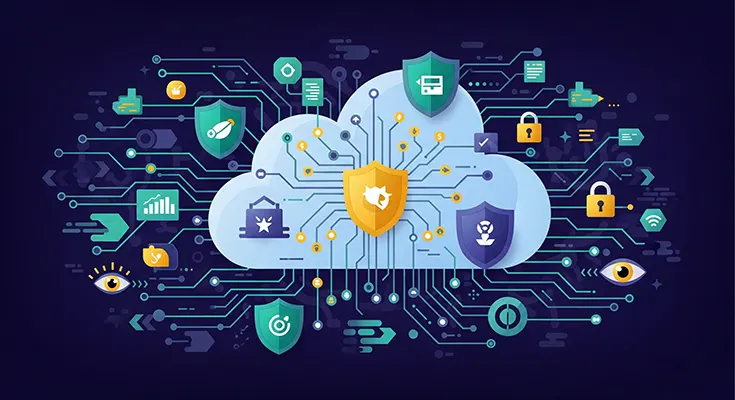In today’s digital age, FinTech platforms have revolutionized the financial industry by offering innovative solutions that streamline processes and enhance user experiences. However, with the increasing adoption of cloud technology in the FinTech sector, cybersecurity has become a paramount concern. Cloud-based FinTech platforms are prime targets for cyber threats, making it essential for companies to implement robust security measures to protect sensitive data and ensure the integrity of their services. This article explores the best practices for cybersecurity in cloud-based FinTech platforms to mitigate risks and safeguard against potential cyber attacks.
1. Data Encryption and Secure Transmission
Data encryption is a fundamental best practice for securing sensitive information in cloud-based FinTech platforms. By encrypting data both at rest and in transit, companies can protect customer data, financial transactions, and other confidential information from unauthorized access. Utilizing strong encryption algorithms and secure communication protocols helps ensure that data remains protected from interception or tampering, enhancing the overall security posture of the platform.
2. Multi-Factor Authentication (MFA)
Implementing multi-factor authentication is a crucial security measure to strengthen access controls and prevent unauthorized logins to cloud-based FinTech platforms. By requiring users to verify their identity through multiple authentication factors such as passwords, biometrics, and one-time codes, companies can add an extra layer of security that significantly reduces the risk of credential theft and unauthorized access. MFA helps to thwart cyber attackers attempting to compromise user accounts and gain unauthorized access to sensitive data.
3. Regular Security Audits and Penetration Testing
Conducting regular security audits and penetration testing is essential for identifying vulnerabilities and weaknesses in cloud-based FinTech platforms. By proactively assessing the security posture of the platform, companies can address potential security gaps, misconfigurations, or vulnerabilities that could be exploited by cyber attackers. Regular security assessments help organizations identify and remediate security issues before they can be exploited, strengthening the platform’s resilience against cyber threats.
4. Employee Training and Awareness
Cybersecurity awareness and training play a critical role in mitigating the human factor in cyber threats. Educating employees about security best practices, phishing scams, social engineering tactics, and data protection policies can help prevent insider threats and improve overall security hygiene within the organization. By fostering a culture of cybersecurity awareness and providing ongoing training, companies can empower employees to recognize and respond to potential security risks effectively.
5. Incident Response and Disaster Recovery Planning
In the event of a security breach or cyber attack, having a well-defined incident response plan and disaster recovery strategy is essential for minimizing the impact and restoring operations quickly. Cloud-based FinTech platforms should have robust incident response procedures in place, including clear escalation paths, response roles and responsibilities, and communication protocols. Additionally, implementing regular data backups and disaster recovery measures ensures business continuity in the face of unexpected cyber incidents.
As cloud-based FinTech platforms continue to transform the financial industry, cybersecurity remains a top priority to protect sensitive data, maintain customer trust, and ensure regulatory compliance. By implementing best practices such as data encryption, multi-factor authentication, regular security audits, employee training, and incident response planning, companies can enhance the security posture of their platforms and mitigate cyber risks effectively. Embracing a proactive and holistic approach to cybersecurity will enable cloud-based FinTech platforms to navigate the evolving threat landscape and safeguard the integrity and confidentiality of their services and data.





